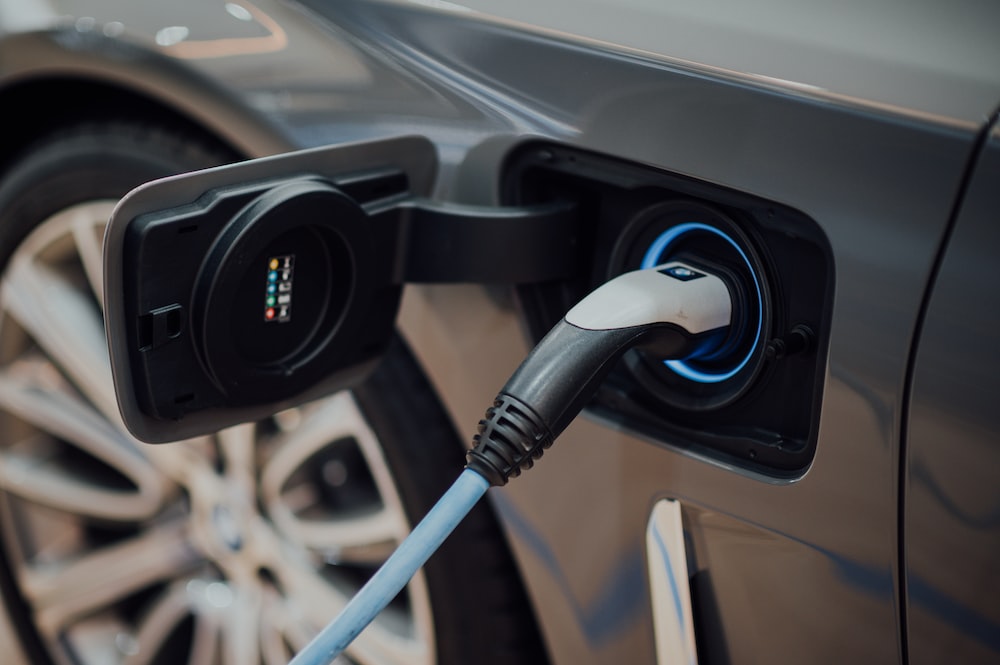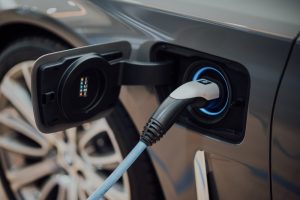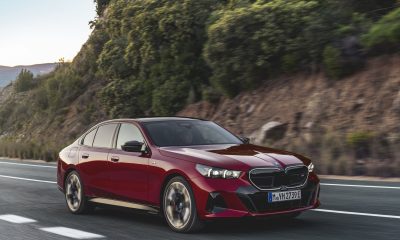Auto Pedia
The Evolution of Electric Vehicles: From Niche to Mainstream


Image Source: Unsplash
In the rapidly evolving automotive landscape, electric vehicles (EVs) are making significant strides, transitioning from a niche market to mainstream acceptance. This article takes a deep dive into the phenomenal evolution of electric vehicles, exploring the key factors that are propelling their popularity and widespread acceptance.
The Rise of Electric Vehicles
Early Challenges and Limited Market Presence
The journey of EVs hasn’t been a smooth ride. In their early years, these innovative machines faced numerous challenges – from technological limitations to high production costs, not to mention the limited public understanding and acceptance of this novel concept. However, despite these initial setbacks, electric vehicles, like the phoenix, rose from the ashes, ready to revolutionize the automotive sector.
Technological Advancements Leading to Improved Range and Performance
Over the years, advancements in technology have played a crucial role in propelling the EV revolution. With the advent of lightweight materials, powerful motors, and more efficient batteries, electric vehicles have seen significant improvements in both range and performance. The technological evolution has also addressed the issue of charging speed, making EVs more practical for daily use.
Government Incentives and Environmental Concerns Driving EV Adoption
In recent years, mounting environmental concerns and governmental push have been instrumental in driving the adoption of EVs. Governments worldwide are offering tax credits, subsidies, and other incentives to encourage consumers to switch to EVs. Simultaneously, the rising awareness about environmental sustainability is prompting consumers to make environmentally-conscious choices, with many opting for electric vehicles over their gasoline counterparts.
Mainstream Automakers Embrace Electrification
Established Car Manufacturers Investing Heavily in EV Production
Recognizing the immense potential and the future of mobility, established automakers are embracing electrification. Companies like General Motors, Volkswagen, and Ford are investing billions into EV production, underscoring their commitment to a greener future.
Expansion of Electric Vehicle Lineups across Various Segments
In response to the growing demand, automakers are expanding their EV lineup. From compact cars and luxury sedans to SUVs and trucks, consumers now have a wide array of electric vehicles to choose from. The expansion of EV offerings across various segments is a testament to the versatility of electric vehicle technology and its capability to cater to diverse consumer preferences.
Competitive Pricing and Improved Charging Infrastructure
The high upfront cost of electric vehicles has been a significant barrier to their widespread adoption. However, with advancements in battery technology and economies of scale, the prices of EVs are gradually descending, making them a viable option for a broader consumer base. Alongside, the improvement in charging infrastructure is making EV ownership more convenient, further aiding their transition into the mainstream.
The Electric Revolution in Motorsports
Formula E and Its Role in Promoting EV Technology
Motorsports has played a pivotal role in promoting EV technology. Formula E, the world’s first fully-electric international single-seater championship, provides a global platform for automakers to test and showcase their EV capabilities. Through intense competition and high-speed thrills, Formula E has been instrumental in driving public interest and acceptance of electric vehicles.
Automakers’ Participation in Motorsport Events to Showcase EV Capabilities
Motorsport events are a powerhouse of innovation, offering automakers a platform to push the boundaries of EV technology. From Audi to Nissan, leading automakers are participating in these races, leveraging the platform to showcase the prowess of their electric vehicles and accelerate the development of EV technology.
Impact on Performance and Technology Transfer to Consumer Vehicles
The technological advancements made on the race track often trickle down to consumer vehicles. From energy recovery systems to battery management techniques, motorsports has been a catalyst in the evolution of electric vehicle technology. The high-performance electric race cars not only demonstrate the capabilities of EVs but also shape the future of everyday electric vehicles.
Advancements in Battery Technology
Lithium-Ion Batteries as the Cornerstone of Electric Vehicles
Lithium-ion batteries, with their high energy density and long cycle life, have been the backbone of electric vehicles. These batteries have undergone constant refinement and improvement, contributing significantly to the enhanced range and performance of EVs.
Research and Development Efforts to Enhance Battery Efficiency
The quest for a more efficient, durable, and cost-effective battery is ongoing. Researchers worldwide are experimenting with different chemistries and materials, aiming to enhance the efficiency and lifespan of EV batteries. From solid-state batteries to lithium-air batteries, numerous technologies are being explored, promising a future with even more efficient and high-performing electric vehicles.
Potential Breakthroughs and Future Battery Technologies
The future of EV batteries looks promising, with several potential breakthroughs on the horizon. For instance, solid-state batteries, touted as the next big thing in battery technology, promise higher energy density, faster charging times, and improved safety. Similarly, advancements in lithium-sulfur and lithium-air batteries could further revolutionize the EV landscape.
Charging Infrastructure and Range Anxiety
Expanding Network of Charging Stations
A robust charging infrastructure is crucial for the widespread adoption of electric vehicles. Recognizing this, governments and private companies are investing heavily in expanding the network of charging stations. From homes and workplaces to public parking lots, charging points are becoming increasingly accessible, making EV ownership more convenient.
Fast-Charging Advancements and Reduced Charging Times
Advancements in fast-charging technology are addressing one of the major pain points of EV ownership – long charging times. Modern fast chargers can recharge an EV battery to 80% in less than 30 minutes, significantly reducing the time it takes to recharge an electric vehicle. These advancements are not only making EVs more practical for long-distance travel but also helping alleviate range anxiety.
Overcoming Range Anxiety through Improved Battery Range and Technology
One of the biggest concerns for potential EV buyers is range anxiety – the fear of running out of charge before reaching their destination. However, with improvements in battery technology and an expanding charging infrastructure, this concern is gradually being alleviated. Modern electric vehicles offer impressive ranges that are comparable to their gasoline counterparts, making them suitable for both city driving and long-distance travel.
Environmental Benefits and Sustainability
Reduced Carbon Emissions and Environmental Impact
Electric vehicles offer significant environmental benefits. Being zero-emission vehicles, EVs contribute to the reduction of harmful pollutants in our atmosphere. Furthermore, as the share of renewable energy in the electricity mix increases, the carbon footprint of EVs will continue to decrease, making them an even more sustainable transport option.
Renewable Energy Integration with EV Charging
The integration of renewable energy sources with EV charging is another exciting development in the EV landscape. By utilizing solar or wind energy to power charging stations, the environmental impact of EVs can be further reduced. Moreover, vehicle-to-grid (V2G) technologies allow electric vehicles to feed excess energy back into the grid, turning them into mobile power storage units.
Second-Life Applications for Used EV Batteries
Even after their life in an electric vehicle ends, EV batteries can be repurposed for various second-life applications. From stationary energy storage systems to power backup solutions, used EV batteries can find a new lease of life, adding another dimension to the sustainability of electric vehicles.
EV Ownership and Consumer Experience
Cost Savings on Fuel and Maintenance
Electric vehicles offer substantial savings in terms of fuel and maintenance costs. With electricity being cheaper than gasoline and EVs having fewer moving parts, the cost of running and maintaining an electric vehicle is significantly lower than that of a conventional car. These savings make EVs an economically attractive option in the long run.
Incentives, Grants, and Tax Benefits for EV Owners
To encourage the adoption of electric vehicles, governments worldwide are offering a slew of incentives, grants, and tax benefits for EV owners. From subsidies on the purchase price to exemptions from road tax and congestion charges, these incentives make EV ownership more affordable and attractive.
User-Friendly Interfaces and Technological Features
Modern electric vehicles come equipped with user-friendly interfaces and advanced technological features. From state-of-the-art infotainment systems to smart connectivity features, EVs offer a refined and futuristic driving experience. Furthermore, over-the-air software updates ensure that the vehicle’s features and performance keep improving over time.
The Role of Autonomous Driving in Electric Vehicles
Synergy between EVs and Autonomous Driving Technology
The rise of autonomous driving technology is closely intertwined with the evolution of electric vehicles. With their superior torque control and the ability to recuperate energy during braking, EVs provide an ideal platform for autonomous driving systems. Furthermore, the electric drivetrain’s simplicity allows for more flexible vehicle designs, accommodating the additional hardware required for autonomous driving.
Electric Vehicle Fleets and Shared Mobility Services
Electric vehicles are perfectly suited for shared mobility services. With their lower running costs and potential for autonomous operation, EVs are becoming increasingly popular in ride-hailing and car-sharing fleets. Moreover, the shift towards shared mobility can help maximize the utilization of electric vehicles, further reducing their environmental impact.
Potential Challenges and Opportunities for Self-Driving EVs
While the synergy between EVs and autonomous driving opens up exciting opportunities, it also presents several challenges. From regulatory hurdles to technical issues, there are several obstacles to be overcome. However, with continuous advancements in technology and evolving regulatory frameworks, self-driving electric vehicles are set to become a reality in the not-too-distant future.
In conclusion, the future of mobility is electric. As the technology continues to evolve and mature, electric vehicles are set to move from the fringes to the mainstream. While challenges remain, the ongoing developments in battery technology, charging infrastructure, and governmental support are paving the way for a greener, more sustainable future of mobility.




























